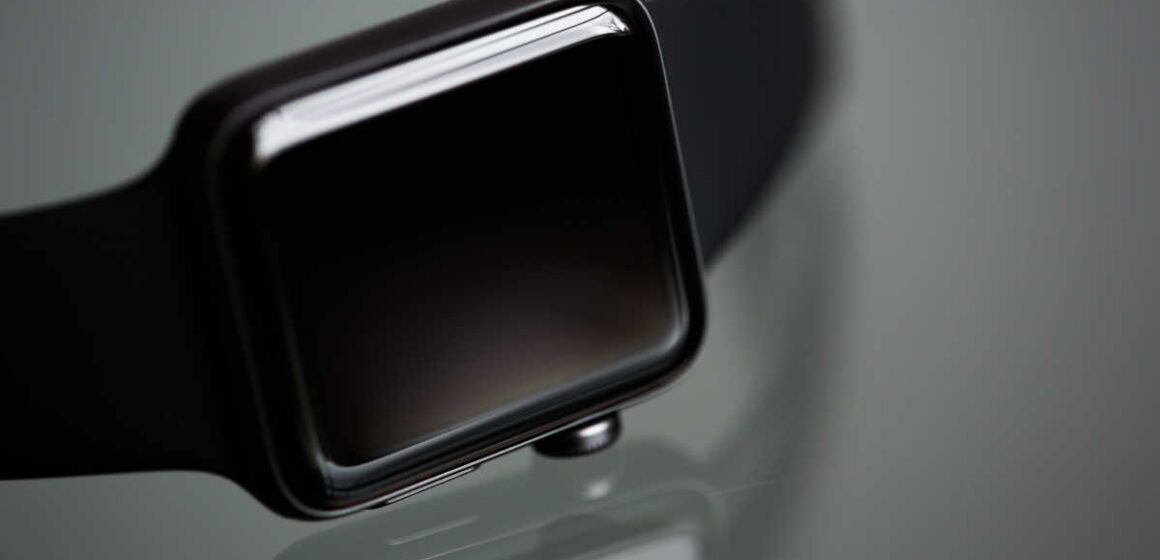The Rise of Mental Health Wearables: A Game-Changer for Wellness
Feeling overwhelmed by stress, anxiety or depression is a common problem many of us face. Did you know that wearable technology can be an innovative solution to track and manage our mental health? This blog post will explore the rise of mental health wearables and how they’re reshaping wellness and treatment approaches.
Are you ready to discover this game-changing revolution in healthcare?.
Key Takeaways
- Mental health wearables are devices that can track and help treat stress, anxiety and depression.
- People can use these gadgets to monitor sleep patterns and make positive behavior changes.
- Different types of mental health wearables include readily available items like smartwatches or customized devices designed for personal needs.
- Wearable technology faces challenges like acceptance from healthcare providers, user resistance to change, cost issues, and access for everyone.
- The future of these devices looks promising with potential improvements in research and understanding mental well-being.
The Benefits of Wearable Technology in Mental Health
Wearable technology offers numerous benefits for mental health, including enabling improved monitoring and treatment for depression. It empowers individuals to manage their stress and anxiety levels more effectively by providing realtime feedback.
With the help of these wearables, tracking sleep patterns becomes easier, which plays a significant role in overall mental wellness. Furthermore, they encourage behavior change through self-monitoring mechanisms and data-driven insights.
Improved monitoring and treatment for depression
Improved monitoring and treatment for depression are now possible with the rise of mental health wearables. For instance, devices such as TouchPoints can alter the brain’s response to stress.
These wrist-worn wireless devices pave the way for advanced wearable technology in psychology research, providing quantifiable data previously unavailable. Not stopping at stress only, these devices also offer valuable insights into depression-related symptoms and behaviors.
With real-time feedback provided by these wearables, individuals suffering from depression can gain a more profound understanding of their condition and make informed decisions regarding their general wellbeing.
As a result, mental health care sees improvements through enhanced personalized treatments based on data directly obtained from patients themselves – an approach that signals a game-changing advancement in wearable wellness technologies.
Managing stress and anxiety
Wearable technology takes a leap in assisting with stress and anxiety management. Devices like TouchPoints, wireless marvels worn on the wrists, have shown promising results. Studies reveal that these intelligent wearables alter the brain’s response to stress, making it easier for individuals to cope with challenging situations.
This significant advancement translates into improved mental fitness.
Taking advantage of this innovative solution does more than just monitor heart rate or sleeping patterns; it offers comprehensive understanding of personal wellbeing through real-time feedback and self-monitoring tools.
Users can gain insights about their physiological responses in stressful scenarios which not only brings awareness but also empowers them to take control over their reactions in specific situations.
Using digital health platforms linked with wearables further enhances the user experience by providing personalized healthcare strategies that majorly focus on behavior change for maintaining mental wellness.
Tracking sleep patterns
Using mental health wearables for tracking sleep patterns is a powerful tool in maintaining overall wellbeing. Disruptions in these patterns can be early indicators of mental health issues like depression and anxiety.
These wearable technologies, such as fitness trackers and smartwatches, offer insights into our sleep cycle that include the length of deep sleep and periods of wakefulness during the night.
By analyzing this quantifiable data, individuals gain an understanding about their quality of rest, which is crucial for managing stress levels and promoting behavior change. This user-friendly approach allows people to take control over a vital aspect of their mental fitness discreetly without any professional intervention.
Encouraging behavior change
Mental health wearables play a significant role in fostering behavior change. These devices provide real-time feedback about our physiological state, enabling us to identify patterns linked to stress or anxiety.
For example, TouchPoints, wrist-worn wireless devices can alter the brain’s response to stress and promote calming responses. By providing insights into how different situations affect our bodily responses, mental health wearables can guide users towards healthier coping mechanisms.
This accessible technology not only supports self-monitoring but also encourages proactive changes for improved mental wellness.
Different Types of Wearable Mental Health Technology
Delve into the various types of wearable technology designed for mental health, from off-the-shelf gadgets to customized devices, each offering unique features for monitoring stress and anxiety.
Explore more about how these innovations cater to individual needs in managing mental wellness.
Off-the-shelf wearables
Off-the-shelf wearables are readily available and easy to use, making them a popular choice for many individuals. These devices, including smartwatches and fitness trackers, help monitor daily activity levels, sleep patterns, heart rate variability and overall mental well-being.
TouchPoints is one such device that exposes its user’s brain to alternating bilateral stimulation or vibrations which has been argued can change the brain’s response to stress.
Such off-the-shelf wearables offer quantifiable data in psychology research by providing significant physiological information. This technology helps bridge gaps in knowledge about behavior change and self-monitoring.
Wearable technology empowers people by helping them make informed decisions concerning their lifestyles. Importantly, wearable health technology shows promise as a game-changing advancement for early interventions in mental health care.
Customized wearables
Customized wearables take health monitoring to the next level. These high-tech accessories are designed with a more personalized approach, catering to specific user needs. Innovative companies like TouchPoints create wireless devices worn on the wrists that can alter brain responses to stress, making them a standout example in this category.
Mental health monitoring becomes more individualised and accurate with customized wearables, shifting control into the hands of users. Not only do these devices collect detailed physiological data but they also provide real-time feedback, empowering people to actively manage their well-being while supporting behavior change goals for better mental fitness.
Value in monitoring stress and anxiety
Wearable mental health technology, like TouchPoints, provides a revolutionary approach to managing stress and anxiety. It alters the brain’s response to stress, according to its developers.
These devices provide quantifiable data and real-time feedback making them essential tools for individuals seeking control over their well-being. The physiological data tracking provided by wearables assists in understanding one’s body better.
Continuous monitoring of stress levels through these wearables can lead an individual towards behavior change and improved general wellbeing. Further, they serve as enabling gateways that empower users with insightful analysis about their mental fitness.
In turn, this leads to more informed decisions regarding lifestyle changes promoting overall health improvement.
Challenges and Barriers to the Use of Wearable Mental Health Technology
Despite the potential benefits, wearable mental health technology faces several hurdles like limited involvement from healthcare providers due to skepticism over data accuracy. There’s also resistance among some users who are not ready for behavior change or find it hard to trust technology with their sensitive health information.
Additionally, cost and accessibility issues may hinder its widespread adoption as not everyone can afford these devices or understand how to use them effectively.
Limited involvement from healthcare providers
Limited involvement from healthcare providers presents a significant barrier to the widespread use of wearable mental health technology. Providers play a pivotal role in encouraging patients to utilize this innovative tech.
Unfortunately, many are yet to fully embrace these tools, largely due to unfamiliarity and lack of training. The on-going evolution in digital health requires professionals to keep pace with rapid technological changes.
Furthermore, wearables produce an overwhelming amount of data which may intimidate some practitioners. Sorting through pages of heart rates or sleep patterns can be time-consuming for busy clinicians who already deal with packed schedules and administrative needs.
Until healthcare providers champion the cause and adopt systems for streamlined data interpretation, the potential benefits offered by wearables might remain untapped.
Resistance to behavior change
Embracing wearable technology for mental health often demands that individuals adapt their behavior. This process of change, however, can be met with resistance. The reason for this varies by individual and situation but may include a reluctance to rely on digital systems or discomfort with the perception of constant monitoring.
This resistance can pose significant challenges to broad adoption of wearables in the realm of mental health. It underscores the necessity for education about how these devices function and their potential benefits towards personal healthcare management.
Overcoming this hurdle is key in utilizing these game-changing advancements in wellness wearables to their fullest potential.
Cost and accessibility
Cost is a significant factor concerning the rise of mental health wearables. These devices, like TouchPoints and smartwatches, are not always affordable for everyone due to their high prices.
Furthermore, quality wearable technology often requires connections to modern smartphones or computers for data analysis and tracking – resources not readily available to all populations.
Accessibility is another critical issue in this realm. Although technology affords many conveniences, it can prove challenging for those less tech-savvy, such as seniors or individuals from underprivileged backgrounds.
Moreover, while remote patient monitoring opens avenues for better healthcare accessibility in rural areas, it still necessitates internet access – a luxury yet to reach some parts of the world.
The Future of Mental Health Care with Wearable Technology
As wearable technology continues to evolve, its application in mental health care holds promise for improved research and understanding. These innovative devices empower individuals to take charge of their mental well-being by providing real-time data on stress levels, sleep patterns, and overall mood.
Looking forward, wearables could revolutionize not only how we collect and understand physiological data but also how we approach personalized healthcare—these are truly game-changing advancements in wellness wearables.
Improved research and understanding
Thanks to the rise of mental health wearables, advancements in research and understanding of mental wellness have surged. Wearable technology provides scientists with robust, quantifiable data that can transform psychological studies.
For instance, TouchPoints, devices worn on wrists have proven instrumental for a study on stress responses.
The clearest impact has been seen in early intervention initiatives. A study from Florida State University flagged wearable tech as a major player in quickly identifying potential mental health issues.
It is expected that this trend will persist and grow, leading to a more nuanced view of mental health and paving the way for preventative care measures. Evidence-based strategies can be developed by using insights derived from these innovative tools.
This new wealth of real-time data collected shows promise for creating positive change within the field of psychology research.
Empowerment for individuals in managing their mental health
Wearable technology plays a crucial role in empowering individuals to take control of their mental health. Devices like smartwatches and fitness trackers offer real-time feedback on stress levels, sleep patterns, and other factors related to mental well-being.
The data provided by these wearables enables people to make informed decisions about their lifestyle that can improve general wellness.
Furthermore, innovations such as TouchPoints are revolutionizing the way we handle stress. This pair of wireless devices worn on the wrists has been found capable of altering our brain’s response to stress – an essential aspect of maintaining good mental health.
By using wearable tech’s quantifiable data, users gain insight into their own behaviors and physiological responses in ways that were previously untenable, thereby actively driving positive behavioral change and leading a healthier life overall uninterrupted by debilitating conditions like depression or anxiety.
Conclusion
The advent of mental health wearables signals a significant shift in the landscape of personal healthcare. These devices are transforming our understanding and management of mental well-being, providing individuals with key insights into their lifestyle habits, stress levels, and overall wellness.
Utilizing technology like TouchPoints, for example, can potentially alter our brain’s response to stress. Furthermore, these revolutionary tools open doors for early intervention strategies in mental health care as shown by the Florida State University study.
However, it is essential to tread cautiously recognizing both immense possibilities they bring along with the challenges such as cost and accessibility issues. As wearable technology continuous its upward trajectory in popularity and application, it stands poised to redefine concepts of personalized healthcare and self-monitoring.
FAQs
1. What are mental health wearables?
Mental health wearables are devices like watches or bracelets that can track and monitor the wearer’s mental health conditions.
2. How do mental health wearables work?
Mental health wearables work by collecting data such as heart rate, sleep patterns or stress levels, which helps in identifying any sign of mental distress.
3. Can these devices provide a reliable indication of my mental state?
While they can’t replace a formal diagnosis, mental health wearables can provide valuable insights into your emotional well-being by tracking specific bio-signals over time.
4. Is my data safe with these mental health wearable devices?
Most companies ensure strong privacy measures to protect user data but it’s always recommended to check their privacy policies before use.
5. Where can I buy a Mental Health Wearable device?
You can buy Mental Health Wearable devices from various online retailers or electronic stores that sell smartwatches or fitness trackers

Dr. O “TheTeenDoc.” helps clinicians communicate better with their teen patients. She speaks, blogs www.TheTeenDoc.com, researches and consults on communicating with teens. She has written two e-books for parents and teens on communicating about the challenging subject of sexual health. You know, teens that bring chief complaints of belly pain, social crisis, emotional turmoil and obnoxious parents. Or, is it the parents with obnoxious teens? Sometimes she mixes that complaint up.
Dr. O speaks www.TheTeenDoc.com to and is consulted by clinicians who want advice managing difficult teen and teen-parent situations. These situations frustrate clinicians and slow down their clinics making them wonder if they’ll ever walk out the door for the day. Every day, in her own practice, Dr. O helps clinicians communicate better with teens and helping you is another level of reward. Her talks are fun and informative, and her delivery empowers clinicians to actually think teens are an awesome group to work with. Her energy about teens is contagious and has inspired her coaching clients to have less fear and more confidence with the teens in their panel. Her dedication to seeing you succeed with a group she is so passionate about is what makes Dr. O’s Lounge the place you want to be!
If you are a clinician that has teen’s in your practice, from pediatrics to internal medicine, the person with whom you need to connect is Dr. O “TheTeenDoc!” You can listen to a complimentary audio “The Art of Teen Medicine” and recommend her e-book “Are You Serious? It’s Just Sex!” to your patients. And while you’re there, become part of Dr.O’s Lounge.
Specialties: consulting, coaching, counseling, mental health, research, seminars, spanish, public speaker, teaching, communications between teens and adults



